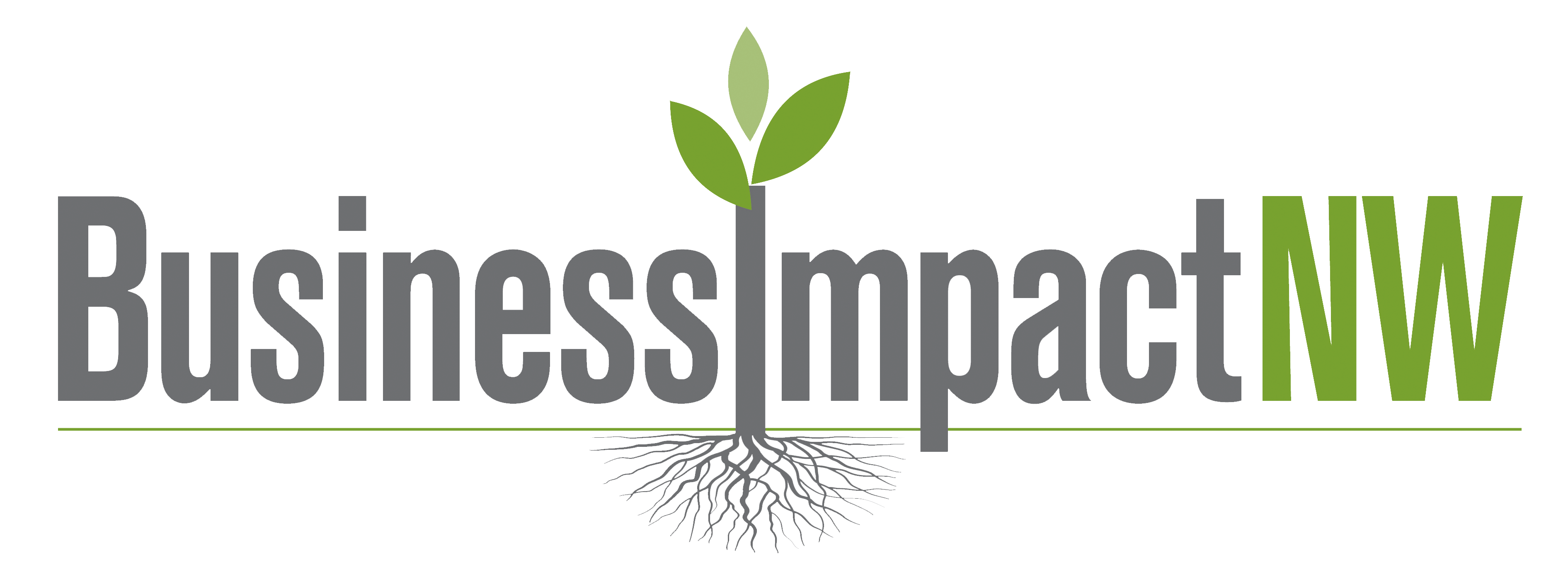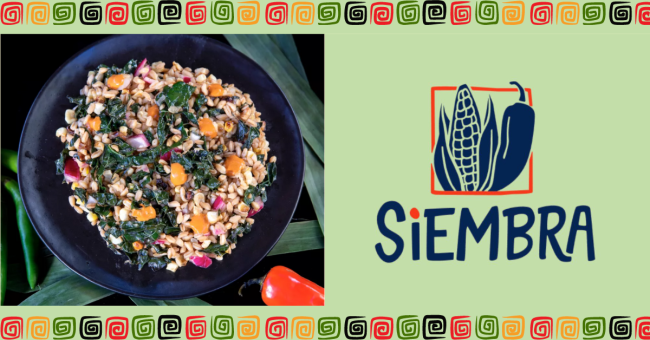“Siembra Seattle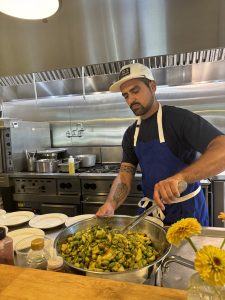 , situated in the bustle of Seattle’s dynamic food scene, serves as a vibrant representation of community, delicious cuisine, and the power of the entrepreneurial spirit. Founded during the Covid-19 pandemic, Siembra Seattle blends Colombian and Peruvian cuisine’s bold flavors with a modern Pacific Northwest flair. Throughout the most challenging periods, owner Alex Dorros, has remained steadfast in his commitment to honoring his family’s heritage. With his unwavering dedication to innovation and passion, Alex successfully established Siembra Seattle. Through Siembra Seattle, Alex stands as a testament to how small businesses can thrive.
, situated in the bustle of Seattle’s dynamic food scene, serves as a vibrant representation of community, delicious cuisine, and the power of the entrepreneurial spirit. Founded during the Covid-19 pandemic, Siembra Seattle blends Colombian and Peruvian cuisine’s bold flavors with a modern Pacific Northwest flair. Throughout the most challenging periods, owner Alex Dorros, has remained steadfast in his commitment to honoring his family’s heritage. With his unwavering dedication to innovation and passion, Alex successfully established Siembra Seattle. Through Siembra Seattle, Alex stands as a testament to how small businesses can thrive.
Siembra Seattle’s success has been driven by the owners’ incredible resilience and passion for food and community. They have chosen to forgo a traditional restaurant setting in order to keep costs low, and have received support for expanding their business through Business Impact NW’s Incubator Kitchen Program, and access to commercial and restaurant-grade resources. This program is in partnership with 21 Acres Farm. 21 Acres is a leader in sustainable and regenerative practices, serving as an agroecological education center and living laboratory for people who want to learn about solutions to climate change.
With this invaluable support, Siembra Seattle has grown, evolved, and made a meaningful impact in its community. Their story inspires other aspiring food business entrepreneurs. It highlights how businesses can flourish while maintaining strong ties to their traditions and community.
Below, Siembra Seattle’s founder shares insights into the journey, the importance of community, and how Business Impact NW has played a crucial role in their growth.
Q: Your journey with Siembra Seattle began during a challenging time—how did your Colombian and Peruvian roots influence the creation of your pop-up restaurant? What inspired you to dive into Seattle’s culinary scene after the pandemic?
“In our family, food was always an expression of love and our main source of medicine. I remember my Colombian grandmother taking the bus to buy produce and seafood to cook with us. She would cook us arepas- corn griddle cakes that she would hand form. I can still remember the sound of their distinctive sizzle on the griddle. We grew up eating Colombian staples, like stews and tamales on special occasions.”
“Much of my exposure to Colombian food, later on, came from living and traveling in Colombia where I learned from local chefs and from exploring markets. The inspiration to cook Peruvian food came from travels too. The explosion of Peruvian peppers, herbs, citrus, and respect for farm-raised ingredients blew my mind. I came back hungry to jump into the restaurant world in Seattle and highlight these flavors. I helped open a restaurant that was closed two months later due to the pandemic. With so much uncertainty in the air, we didn’t know what else to do besides cook for our community. So we launched Siembra.”
Q: Siembra Seattle’s mission is deeply tied to community-building and food. Can you share more about your community kitchens in Seattle?
“When we launched Siembra, the meals were a real issue for many. I’ve always seen cooking as a service, inspired by chefs like Tarik Abdullah and Melissa Miranda, who prioritize community. I began by providing meals, frequently cooking for a center and other nonprofits in the South End. Although our mobile business limits our capacity to cook regularly for the community, we value partnerships that make it possible. It’s crucial for us to offer food that honors cultural connections.”
“My family and I have always felt that food was one of the strongest ways to bring people together. We cherish the communal aspect of food, seeing shared meals with strangers as a chance to connect and share stories. Eating together, especially with strangers, can almost feel like a radical act in our society. It’s a beautiful opportunity to learn from others, hear stories, and connect with our neighbors. We aim to foster culinary traditions and values of togetherness in Seattle, collaborating with other chefs and business owners.”
Q: As a small business, how has support from Business Impact NW’s Incubator Kitchen Program helped you grow? What specific resources or guidance have been most impactful in shaping Siembra’s success?
“I am very grateful to be part of the 21 Acres Incubator Program. It’s challenging to find affordable kitchen space in Seattle and even harder to find folks who will let you test their equipment. For example, I went from cooking my corn in pots on the stovetop to a commercial steam kettle. This change is going to save me a lot of time and prevent food waste. Through the program, I was able to make a major breakthrough with the process of making my arepa corn griddle cakes with hard-to-find equipment. It’s one of the biggest things that will allow us to scale now.”
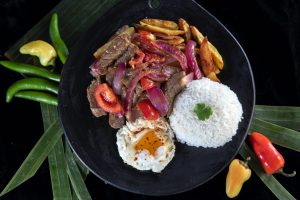 Q: You’ve worked closely with Janel Nonhoff, Business Impact NW’s Incubator Kitchen Manager, at 21 Acres, as well as your business coach, Devra Gartenstein, King County Farm Business Support Specialist. What has that collaboration been like?
Q: You’ve worked closely with Janel Nonhoff, Business Impact NW’s Incubator Kitchen Manager, at 21 Acres, as well as your business coach, Devra Gartenstein, King County Farm Business Support Specialist. What has that collaboration been like?
“Working with Janel has been so rewarding. Her attitude and intentionality behind the kitchen and its clients and her passion for people’s businesses and dreams are infectious. I can tell that she cares deeply about every chef who steps into the kitchen. There are a lot of nuances to working in any shared kitchen, and Janel makes them really easy to navigate. Generally, working with expensive specialized equipment can be a little nerve-wracking, but Janel was alongside me throughout the process. When I made breakthroughs with my product, Janel was right there to help with the fine-tuning. She celebrates our wins with us. It’s awesome to have someone who has worked across enough kitchens that I can learn from by just being around. She has also been a great mentor in supporting my evolving plans.”
”Working with Devra, I gained many insider insights into running my business. These included everything from successful strategies for farmer’s markets to where to source packaging. Her recommendations and insights are especially valuable to me as a business owner who is very intentional about things like sourcing and creating workplaces.”
Q: Seattle’s food culture is vibrant and competitive—how do you maintain your unique voice while also navigating the practical challenges of running pop-ups?
“It’s always a challenge to try not to lose yourself in something that is bigger than yourself and still maintain your voice. Especially in a restaurant setting, things can feel very rhythmic and repetitive in the day-to-day. There are days when it feels more challenging. However, connecting with my peers and having mentors is a key part of maintaining my energy and motivation. Hearing about their distinctive approaches to planning their menus, leading teams, and showing up in the community gives me strength. Additionally, I have gained many insights into the business with support from Janel and Devra.”
Q: What advice would you give to other small business owners, especially those in the food industry? What advice would you give about support systems or partnerships?
“It’s not easy for all of us to ask for help for small business owners. We often pride ourselves on being very self-sufficient. We were expected to juggle so many hats as a business owner; it’s only natural that some aren’t our strong suits. Think strategically about what skills you’re lacking and look for support specifically in those areas. There are tons of great local resources and programs, and there are even more when you expand your horizons across the nation and the globe. Feed the Soul and the Food Finance Institute are two great national programs that are very meaningful to us.”
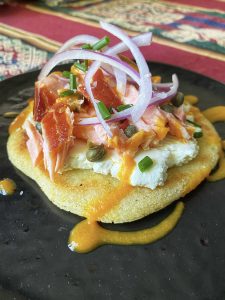 Q: Siembra translates to “sowing seeds for growth”—how do you see this metaphor playing out not only in your food but also in the way your business is evolving and impacting the community?
Q: Siembra translates to “sowing seeds for growth”—how do you see this metaphor playing out not only in your food but also in the way your business is evolving and impacting the community?
“In the act of sowing a seed, you can never be sure about the outcome. All you can do is plant with intention and try to create a positive and stable environment for growth. At one point, our “north star” was opening a restaurant and utilizing the space for community gatherings. That dream has grown into something different as we focus on expanding our mobile sales and wholesale arepa business. Not having a brick-and-mortar will allow us to meet more distinctive needs of our community and continue to evolve as their needs do, too. We hope to partner with school districts and pantries and are extremely excited to offer our arepas as a hot food item at Bonito Café.”
Q: How has your background as a chef and your mother’s as a former Spanish teacher shaped the values and creativity behind Siembra? What role does family play in the heart of your business?
“Becoming chef wasn’t a smooth path for me. Initially, I lacked a culinary background and worked in restaurants mainly to support my college expenses. My real cooking experience began just before the pandemic, with only two months of formal training. I learned mostly on the job at Siembra, through cookbooks, and by observing seasoned chefs. My mom’s role as a teacher and caregiver (and in many ways, a caretaker), significantly influenced my cooking, especially through taste testing and advice on balancing flavors. In our kitchen, where we often speak Spanish and play music, we blend tradition with our reinterpretations, finding joy in cooking together as a family.”
Q: Looking ahead, what are your long-term goals for Siembra?
“We hope to grow Siembra as a mobile food business in Seattle with a food cart. We look forward to expanding Siembra’s wholesale arepa business into a regional brand, selling them at coffee shops and grocery stores. Because I have much to learn in my journey, I will continue to lean on coaching from Business Impact NW. Maybe I will also do additional tests at the kitchen at 21 Acres for my product.”
Q: The combination of Peruvian and Colombian flavors with Pacific Northwest ingredients is a unique approach. How has this fusion resonated with your customers, and how have local collaborations influenced your menu development?
“At first with Siembra, I decided to lean into only Peruvian flavors. Little by little, we started incorporating Colombian dishes like arepas, braised beef, and hot chocolate into the menu. They were very well received. Now it’s an even balance between Peruvian and Colombian flavors. It’s fun to see a toddler’s eyes light up trying an arepa for the first time or a grandma saying it reminds her of home. We are constantly building menus around what’s in season, what we can forage and fish, and what our friends grow and share with us.”
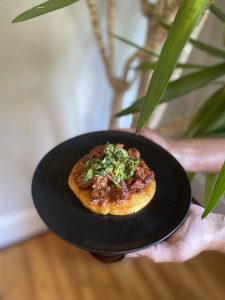 Q: Pop-up restaurants are dynamic and often unpredictable—can you share a memorable moment or challenge from one of your pop-ups?
Q: Pop-up restaurants are dynamic and often unpredictable—can you share a memorable moment or challenge from one of your pop-ups?
“The pop-up world feels like a lively circus of interesting personalities and unpredictable cooking environments. You learn to try and be ready for anything, but you can’t. Even if you plan perfectly, things can go awry and turn into physical comedy. I remember one pop-up at a café where I was setting up a glass case of products that toppled over. It broke the glass as we set up. Then, we short-circuited the power with our pancake griddle. Sometimes, all you can do is laugh, breathe through it, and communicate openly with guests. These are the kinds of situations you have to solve on your own or with the people around you. You can’t always rely on external help.”
Siembra Seattle’s success story illustrates how a thriving small business can benefit from the right support. Siembra Seattle is expanding its operations while remaining committed to the community. Their journey demonstrates how blending cultural authenticity with entrepreneurial innovation can lead to success. For small businesses at any stage of their journey, Siembra’s experience underscores the importance of utilizing resources such as those provided by Business Impact NW and embracing the collaborative spirit of Seattle’s food scene for other small food businesses looking to grow. With dedication, creativity, and helpful support, businesses like Siembra can sow the seeds of long-term success and make a lasting impact on their communities.
Are you a food business owner, who would like to know more about kitchen availability or food business resources? Click here!
Click here to learn more about 21 Acres and the Kitchen Incubator Program
About the author
Emma Seymour is a Communications and Public Relations professional specializing in storytelling, relationship building, and content development. A military spouse and former small business owner, she advocates for veterans, transitioning service members, and their spouses, and has delivered keynote speeches on workforce development, military programs, and childhood trauma.
